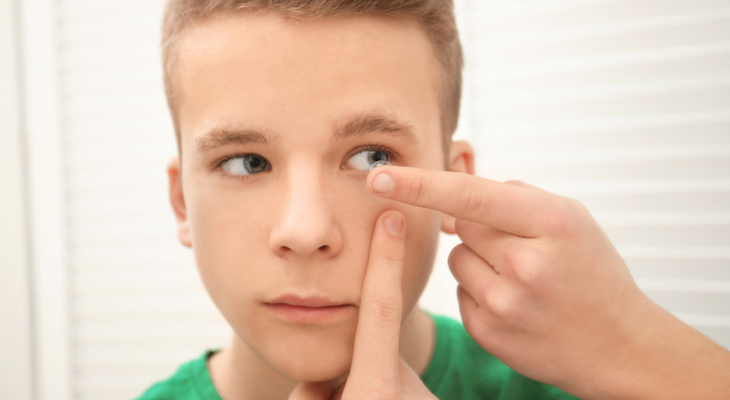
Can Your Optometrist Help You Control Myopia (Nearsightedness)?
Wearing eyeglasses or contact lenses helps you see better if you have myopia, but won't prevent your nearsightedness from worsening. If you or a member of your family are nearsighted, your optometrist offers several treatment options that could slow the progression of myopia. Current options include:
Atropine Eye Drops
Using prescription atropine eye drops may slow the rate of myopia progression. The drops relax the ciliary muscles that change the shape of the lens inside your eye and the size of your pupils.
The lens is a clear, flexible disc inside the eye that focuses light on the retina, a layer of cells at the back of the eye that converts light into electrical signals. The ciliary muscles relax or tighten to alter the shape of the lens as you look at a near object or shift your focus to something in the distance. These changes ensure that light is focused at the exact point on the retina needed for sharp vision.
Atropine eye drops are usually used before you go to sleep. Although the drops slow the progression of myopia, they can't cure it. According to a meta-analysis published in the Journal of Family Medicine and Primary Care in 2022, atropine drops offer an effective way to slow the progression of myopia in children.
Orthokeratology
Orthokeratology, commonly called ortho-k, involves reshaping a person's corneas by wearing special contact lenses overnight. The cornea, the clear tissue covering the iris and pupil, refracts light as it enters the eye. Ortho-k lenses flatten the cornea, which helps improve the focus of light on the retina.
You'll remove the contact lenses every morning and enjoy sharp, clear vision during the day. Ortho-k contact lenses must be worn every night to maintain vision results in adults and children. The lenses don't offer immediately results, but do slowly improve vision over several weeks.
Ortho-k not only reduces reliance on eyeglasses but may also keep myopia under control. A literature review published in Ophthalmology in 2019 noted that ortho-k was effective in slowing myopic progression in children and teens and was most beneficial when started between ages 6 - 8.
Multifocal Lenses
Soft multifocal contact lenses contain several lens powers in one lens, allowing them to provide good near, far, and intermediate vision. The center part of multifocal contact lenses keeps near vision sharp while the outer rings improve intermediate and far vision. The outer rings increase focusing power and keep peripheral light rays focused in front of the retina. According to the National Institutes of Health, focusing light in front of retina slows eye growth in animal studies.
Wearing multifocal lenses slowed myopia progression and eye growth in children aged 7-11 during a three-year study funded by the National Eye Institute.
Multifocal eyeglass lenses could offer the same vision advantages as contact lenses and can be a good option for people who aren't comfortable inserting contact lenses.
Research studies thus far on myopia control have focused on the benefits for children and teens. Although atropine, ortho-k and multifocal lenses haven't been extensively studied in adults yet, that doesn't mean that these options won't also slow myopia in adults. In fact, they may be a good option if you'd like to keep your nearsightedness from getting worse. Your eye doctor can help you decide which option is best for you or your child.
Would you like to find out if atropine, ortho-k or multifocal lenses could keep your myopia under control? Contact our office to schedule an appointment with the optometrist.
Sources:
NCBI: Journal of Family Medicine and Primary Care: Efficacy of Atropine for Myopia Control in Children: A Meta-Analysis of Randomized Controlled Trials, 11/2022
https://www.ncbi.nlm.nih.gov/pmc/articles/PMC10041288
Ophthalmology: Use of Orthokeratology for the Prevention of Myopic Progression in Children, 4/2019
https://www.aaojournal.org/article/S0161-6420(18)33073-2/fulltext
National Institutes of Health: Multifocal Contact Lenses Slow Myopia Progression in Children, 8/11/2020
Review of Myopia Management: Adults Need Myopia Management Too, 4/3/2023
https://reviewofmm.com/adults-need-myopia-management-too/
American Optometric Association: Myopia
https://www.aoa.org/healthy-eyes/eye-and-vision-conditions/myopia?sso=y
International Myopia Institute: Myopia

